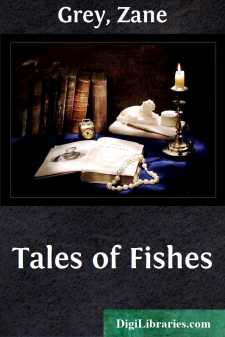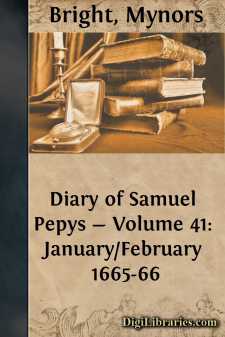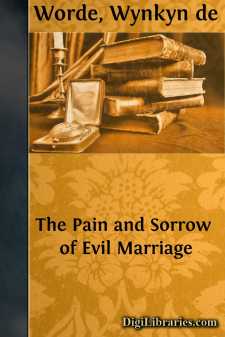Categories
- Antiques & Collectibles 13
- Architecture 36
- Art 48
- Bibles 22
- Biography & Autobiography 813
- Body, Mind & Spirit 142
- Business & Economics 28
- Children's Books 17
- Children's Fiction 14
- Computers 4
- Cooking 94
- Crafts & Hobbies 4
- Drama 346
- Education 46
- Family & Relationships 57
- Fiction 11829
- Games 19
- Gardening 17
- Health & Fitness 34
- History 1377
- House & Home 1
- Humor 147
- Juvenile Fiction 1873
- Juvenile Nonfiction 202
- Language Arts & Disciplines 88
- Law 16
- Literary Collections 686
- Literary Criticism 179
- Mathematics 13
- Medical 41
- Music 40
- Nature 179
- Non-Classifiable 1768
- Performing Arts 7
- Periodicals 1453
- Philosophy 64
- Photography 2
- Poetry 896
- Political Science 203
- Psychology 42
- Reference 154
- Religion 513
- Science 126
- Self-Help 84
- Social Science 81
- Sports & Recreation 34
- Study Aids 3
- Technology & Engineering 59
- Transportation 23
- Travel 463
- True Crime 29
Sort by:
Psychometry: The Divine Science. It is presumed that every reader of these pages has some knowledge of this subject, either by reading the “Manual of Psychometry” or otherwise, and has at least read the “Introduction to the ” on our cover pages. It is not of the directly practical bearings of Psychometry that I would speak at present, but of its imperial rank among sciences, entitling it to the...
more...
by:
Zane Grey
ZANE GREY By W. Livingston Larned Been to Avalon with Grey ... been most everywhere;Chummed with him and fished with him in every Sportsman’slair.Helped him with the white Sea-bass and Barracuda haul,Shared the Tuna’s sprayful sport and heard his Hunter-call,Me an’ Grey are fishin’ friends.... Pals of rod and reel,Whether it’s the sort that fights ... or th’ humble eel,On and on, through...
more...
"Mother, make Ted stop!" "I'm not doing anything at all, Mother!" "Yes he is, too! Please call him in. He's hurting my doll." "Oh, Janet Martin, I am not!" "You are so, Theodore Baradale Martin; and you've just got to stop!" Janet, or Jan, as she was more often called, stood in front of her brother with flashing eyes and red cheeks. "Children!...
more...
Interviewer: Miss Irene RobertsonPerson Interviewed: Silas Abbott R.F.D. Brinkley, Ark.Age: 73 "I was born in Chickashaw County, Mississippi. Ely Abbott and Maggie Abbott was our owners. They had three girls and two boys—Eddie and Johnny. We played together till I was grown. I loved em like if they was brothers. Papa and Mos Ely went to war together in a two-horse top buggy....
more...
by:
Kirk Munroe
CHAPTER I RÉNÉ DE VEAUX On a dreary winter's day, early in the year 1564, young Réné de Veaux, who had just passed his sixteenth birthday, left the dear old chateau where he had spent his happy and careless boyhood, and started for Paris. Less than a month before both his noble father and his gentle mother had been taken from him by a terrible fever that had swept over the country, and Réné...
more...
PUSS AND THE CAPTAIN. I am going to relate the history of a pleasant and prosperous life; for though a few misfortunes may have befallen me, my pleasures have far exceeded them, and especially I have been treated with such constant cordiality and kindness as would not fail to ensure the happiness of man or beast. But though I have no reason to complain of my destiny, it is a remarkable fact, that my...
more...
by:
Mynors Bright
JANUARY & FEBRUARY 1665-1666 January 1st (New-Yeare's Day). Called up by five o'clock, by my order, by Mr. Tooker, who wrote, while I dictated to him, my business of the Pursers; and so, without eating or drinking, till three in the afternoon, and then, to my great content, finished it. So to dinner, Gibson and he and I, and then to copying it over, Mr. Gibson reading and I writing, and...
more...
AUBER. Daniel François Esprit Auber, one of the most prominent representatives of the opera comique, was born at Caen, in Normandy, Jan. 29, 1784. He first attracted attention in the musical world by his songs and ballads, written when a mere boy. Young as he was, they were great favorites in French and English drawing-rooms, and their success diverted him from his commercial intentions to that...
more...
by:
Wynkyn de Worde
INTRODUCTION. There are three early humorous tracts in verse upon the subject of marriage, all printed by Wynkyn de Worde: only one of them has a date, 1535, but we can have little difficulty in assigning the two others to about the same period. They have the following titles. 1. “A complaynt of them that be to soone maryed.” 2. “Here begynneth the complaynte of them that ben to late maryed.”...
more...
by:
Honore de Balzac
CHAPTER I. AN OLD MONASTERY "Come, deputy of the Centre, forward! Quick step! march! if we want to be in time to dine with the others. Jump, marquis! there, that's right! why, you can skip across a stubble-field like a deer!" These words were said by a huntsman peacefully seated at the edge of the forest of Ile-Adam, who was finishing an Havana cigar while waiting for his companion, who...
more...











